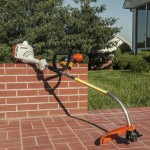When it comes to home improvements, I firmly believe that there are certain small and relatively easy projects every man should be able to undertake and complete successfully. Anchoring a bookcase or a display cabinet to a wall, filling unsightly holes and cracks, fixing loose or wobbly tiles, unclogging a drain, replacing shower heads, toilet seats, and doorknobs, painting, and sealing pavement cracks are some of the things you should know how to do (not to prove your manliness, but to save money). However, electrical work is not one of them.

A couple of months ago, I decided to replace all of my old light switches with brand new ones. At first I thought I could get the job done myself and thus avoid spending hundreds of dollars on professionals, but luckily I did my research and found out that our country’s laws and regulations are strict when it comes to working on the electrical systems in our residences. According to these rules, a person doesn’t have to be licensed to buy electrical goodies from electrical wholesalers, but they definitely need to be licensed in order to install most of them.
If you live in Queensland, you should know that its Electrical Safety Act 2002 doesn’t allow home owners to: install new power points; alter the location of existing power points; replace light switches; repair electrical appliances; replace a light fitting with a ceiling fan, and a number of other tasks. Replacing a drive belt in a washing machine, cutting openings for air-conditioning units, and fitting an electric wall oven in a kitchen cabinet are some of the few acceptable tasks for home owners in Queensland. The Queensland government warns that DIY electrical work is regarded as unlicensed electrical work, which is illegal and has penalties of up to $40,000 for individuals.
The state of New South Wales has similar rules and regulations. According to NSW Fair Trading, “an electrical license is required before any electrical wiring work can be undertaken in New South Wales, regardless of the cost of the work and regardless of whether the work is residential, commercial, or industrial”. This includes the manufacturing, constructing, installing, testing, maintaining, repairing, altering, removing, or replacing of any electrical equipment.
Yes, all of this means that hiring licensed and experienced electricians is practically inevitable if you’re not one yourself. However, by purchasing all the electrical supplies you need from reputable electrical wholesalers rather than retailers, you’ll be able to save a significant amount of money. That’s precisely what I did.


